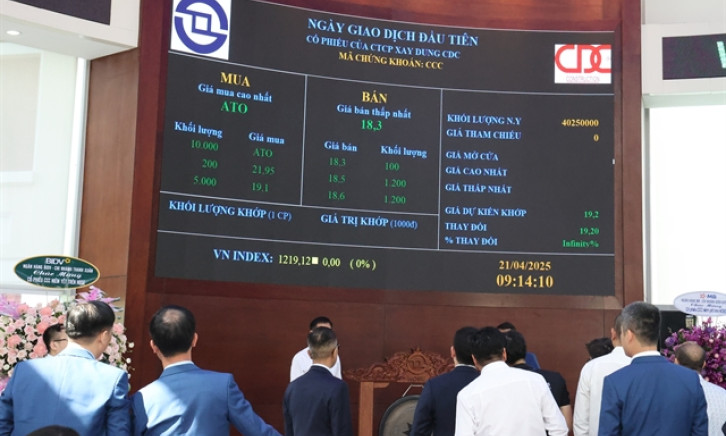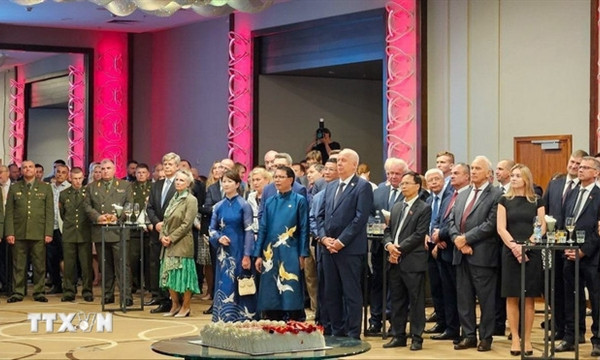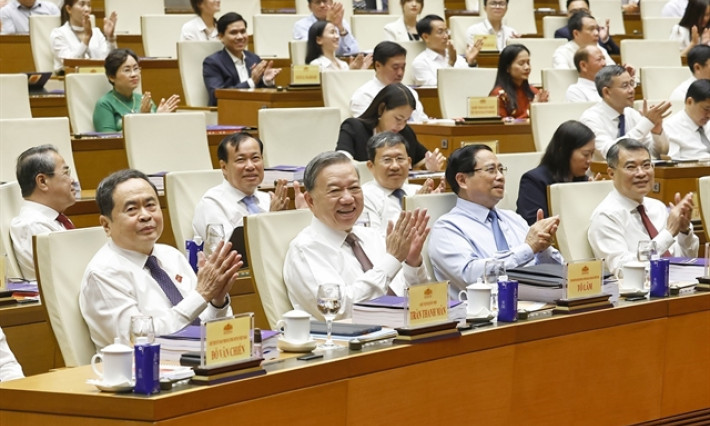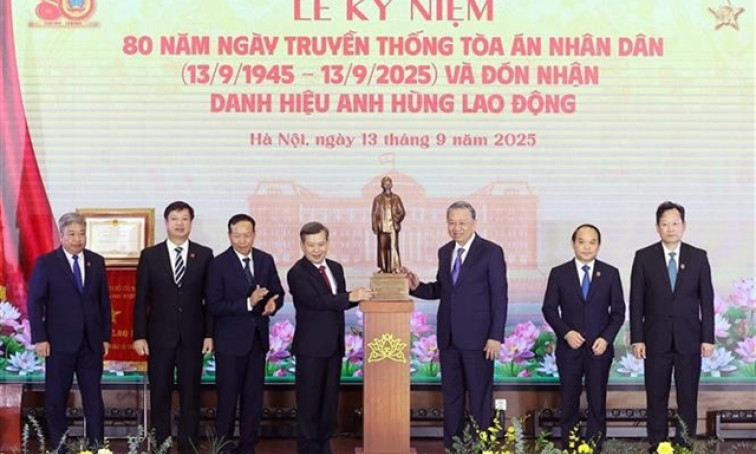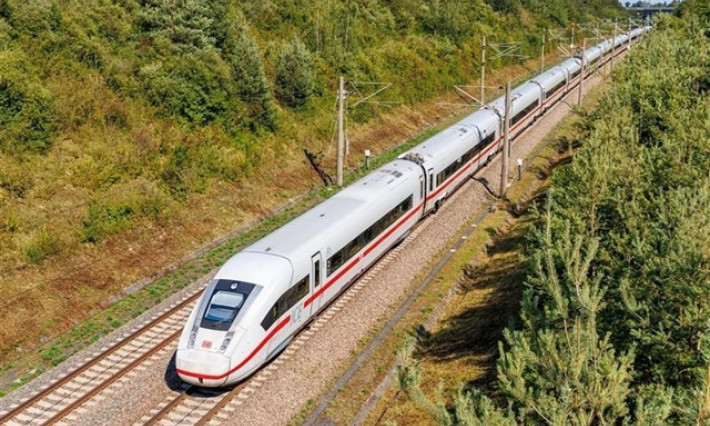Opportunities and challenges
Entering 2023, the world overcame the COVID-19 pandemic. Even the last countries with the epidemic have abandoned “ zero-covid ” and reopened. However, throughout the past year, what was talked about most were still uncertainties, unpredictable complications and "headwinds".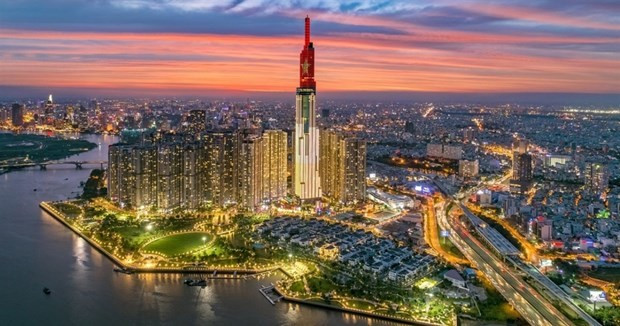
But it will not be enough to look back at 2023 without mentioning the bright spots, along with structural changes and breakthroughs, especially in technology, that can create momentum and space for strategic development for the world in the coming time.
Talking about "headwinds" that have accumulated over many years, plus years of raging epidemics and stagnant closures, have created a multi-dimensional crisis for the world. These are challenges in health, health systems, supply chains and governance from global to regional and national scales. The consequences of the pandemic still lingered, even though the world has reopened. Although the world economy has recovered and inflation is under control, it is not yet stable and sustainable.
Geo-political instability continues to increase, especially competition between major countries, including the US and China, along with crises and conflicts, which have posed complicated challenges to world peace, security and development. The accompanying consequences are political, security and economic as the pressure of polarisation and side selection increases, supply chains are separated and broken, and global economic relations have new shifts, increasingly diversified.
The war in Ukraine persists and still has no solution, while the Middle East conflict flared up, with multi-dimensional impacts on the world and other regions, including Asia-Pacific. The previous system of strategic arms control agreements is currently broken without any replacement due to deep disagreements between major countries.
Meanwhile, non-traditional security challenges, climate change, natural disasters, and epidemics are becoming increasingly urgent and directly affecting the survival and development environment of countries.
Breakthrough developments in technology, especially artificial intelligence (AI), not only opened up great opportunities for human development but also posed complicated challenges in governance and cooperation between countries.
The development of AI or Big data in 2023 set an important milestone in technological development, being both a driving force and a factor promoting the development of the world's productive forces. AI has brought great development opportunities in the futurewhile also posing significant challenges when the world has to adapt to this new technology and fill gaps in the management and control of potential risks related to AI.
At the time of transition from the old year to the new year 2024, the world has been facing a moment of profound transformation, both in terms of geopolitics-security and geo-economics, with many dimensions of challenges and opportunities interwoven, as well as between the old and the new. There are some notable points below:
First, there is the world trend of shifting strongly towards multipolarity and diversification. Although strategic competition between major countries is complicated, it is unlikely to lead to polarisation, while the role of other countries is also increasing, both at the regional and global levels. Accordingly, the collection of countries will not follow a block but will be diverse, multi-dimensional, multi-level and interwoven.
Second, the trend of shifting geo-economics, intertwining dependence and separation, especially supply chains, towards diversification and more emphasis on economic security. This is not only due to the impact of competition with major countries but also due to the need to diversify and avoid being too dependent on one market from recent lessons learned about the risk of disruption of the supply chain, for different reasons, due to natural disasters, epidemics or geo-political and security crises.
Third, breakthroughs in technology and innovation, as well as the development of new economic models, such as digital, green and sustainable transformation, have created new opportunities and dynamism, strong for economic development and other aspects of social life, including defence and security. For example, green transition and adaptation to climate change are no longer purely environmental issues but have become a market factor, as countries such as the European Union (EU) have introduced the issue of emissions reduction as a component requirement of goods imported into these markets.
At the same time, the new, more complicated geo-political context, with increased technological development and non-traditional security challenges, has placed new demands on global governance. As UN Secretary-General António Guterres commented, the current governance system was outdated and should be innovated accordingly.
That is an objective and urgent requirement for the international community in a drastically changed world, including ensuring peace and security, resolving conflicts, handling non-traditional security challenges, and managing aspects of technological development.
Cooperation of countries is vital in cooperation on climate change, such as through the 26th United Nations Climate Change Conference of the Parties (COP26) to COP28, in helping each other control the COVID-19 epidemic or initiating consultations on AI governance issues.
For Vietnam, 2023 is also a year that left important marksas the country has had a turning point in converting from an adaptive to a proactive strategy. From an effective response, Vietnam has succeeded in controlling the pandemic and moved to proactively expanding economic and social activities and integrating with the outside world, especially the resumption of supply chains,focusing on taking advantage of resources for recovery and development.
Regarding foreign affairs, not only adapting to the new geo-political context and complicated competition, Vietnam has proactively expanded and raised the level of relations with other countries, especially with key partners who are neighbouring or major countries.
During the year, Vietnam exchanged high-level delegations with many countries, reaching many important agreements, including welcoming US President Joe Biden and Chinese President Xi Jinpingand raising the level of relations with the US, China and Japan.
Although there are still many difficulties ahead, the achievements obtained in 2023 and over the past years have created a new strategic position and opportunity for Vietnam, very favourable for the requirements of economic development, ensuring security and enhancingthe country’s position.
Entering the new year 2024, the world will continue the development trends mentioned above, containing many unstable, complicated and unpredictable elements, but will also be mixed with opportunities and challenges.
Every new year is an opportunity to reflect and plan for the future. We look back on 2023’s lessons that will help the international community further promote efforts for peace, cooperation and common development of the world, as well as for regions and countries.


